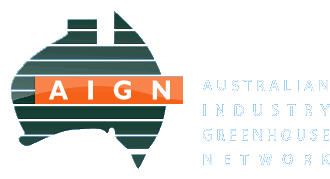 The main industry lobby group is the Australian Industry Greenhouse Network (AIGN). Its members are large companies including oil companies Exxon-Mobil Australia, BP Australia, Caltex Australia, Shell Australia, mining companies including BHP Billiton, Rio Tinto, Woodside, Santos and Xstrata, energy companies such as Santos and Origin Energy and others including Bluescope Steel, Mitsui, CSR, Chevron, Alcoa Australia as well as industry associations:
The main industry lobby group is the Australian Industry Greenhouse Network (AIGN). Its members are large companies including oil companies Exxon-Mobil Australia, BP Australia, Caltex Australia, Shell Australia, mining companies including BHP Billiton, Rio Tinto, Woodside, Santos and Xstrata, energy companies such as Santos and Origin Energy and others including Bluescope Steel, Mitsui, CSR, Chevron, Alcoa Australia as well as industry associations:
The AIGN position on climate change is that any greenhouse policies must maintain the international competitiveness of Australian industries, be trade and investment neutral, "not discriminate against new entrants to Australian industry" and "be based as far as is practicable on market measures".
Between 1998 and 2005 AIGN members gave at least $3.3 million to the governing Liberal Party in donations and payments for Liberal Party functions. Additional donations were made by AIGN members to Liberal Party organisations such as Liberal Party's think tank, the Menzies Research Centre, (which in turn provides funds to the Liberal Party) and a number of fundraising front groups that enable business to fund the Liberal Party more privately. These include the Cormack Foundaiton, the Greenfields Foundaiton, Vapold P/L, and the Free Enterprise Foundation. These foundations also invest their money in AIGN member companies giving them their own interest in the profits of polluting companies.
Many senior AIGN personnel have previously held senior positions in government where they helped shape Australian energy and/or climate change policy and negotiate Australia's stance towards international treaties. They have been hired by fossil fuel companies because of their govenment access and insider knowledge.
According to Guy Pearse, whose PhD was based on interviews with AIGN members and others, the inner core of AIGN members refer to themselves as the greenhouse mafia and told him how they managed the wider business community to ensure that dissident business views did not get an airing. They achieved this through their corporate influence on company boards, in neoliberal think tanks, and with prime minister John Howard.
Much to my dismay, I came to realise that our worst polluters had embedded themselves in the few sources of scientific, economic and political greenhouse policy advice that John Howard and his government were now relying on: the industry department, the foreign affairs and trade department, as well as ABARE (the government's main source of economic analysis of greenhouse policy) and CSIRO. The process was being contaminated because the few trusted sources of advice, instead of representing a range of views, had the same people and financial interests behind them.
The AIGN also managed to persuade other business lobbies to support its climate policy stance through relationships with key individuals, according to Pearse, including the Australian Chamber of Commerce and Industry (ACCI). The Business Council of Australia (BCA), in particular, has also been supportive of the AIGN agenda because of its domination by mining interests, particularly in its leadership.
The Howard government decisions not to ratify the Kyoto agreement, not to set greenhouse reduction targets, not agree to not to implement emissions trading ahead of a global scheme, not to extend the Mandatory Renewable Energy Target (MRET) and for "generous subsidies for fossil fuel companies for research and development", were all greenhouse mafia goals.
 Reference: Guy Pearse, High & Dry, Viking, London, 2007, pp. 151-2.
Reference: Guy Pearse, High & Dry, Viking, London, 2007, pp. 151-2.If you scan the arguements John Howard has used since then, you may not find much explicit attribution to the AIGN. But you will see all of the AIGN's arguments repeated over and over again in defence of policies they have wholeheartedly endorsed.
The Howard government formed eight taskforces as part of the Asia Pacific Partnership on Clean Development and Change (AP6) and appointed AIGN members as the only industry representatives on six of them excluding other industry sectors with an interest in clean technology. Similarly AIGN has dominated the Industry-Government Greenhouse Partnership Committee of the Australian Greenhouse Office. Pearse notes: "Frustrated participants have told be that strong-armed caucusing by the AIGN means the AGO only ever hears the view AIGN wants it to hear".
Even after the government changed, and the Rudd government was elected on promises to ratify Kyoto and introduce an emissions trading scheme, business lobbying